From court cases to the ballot box, climate change will take centre stage in 2023
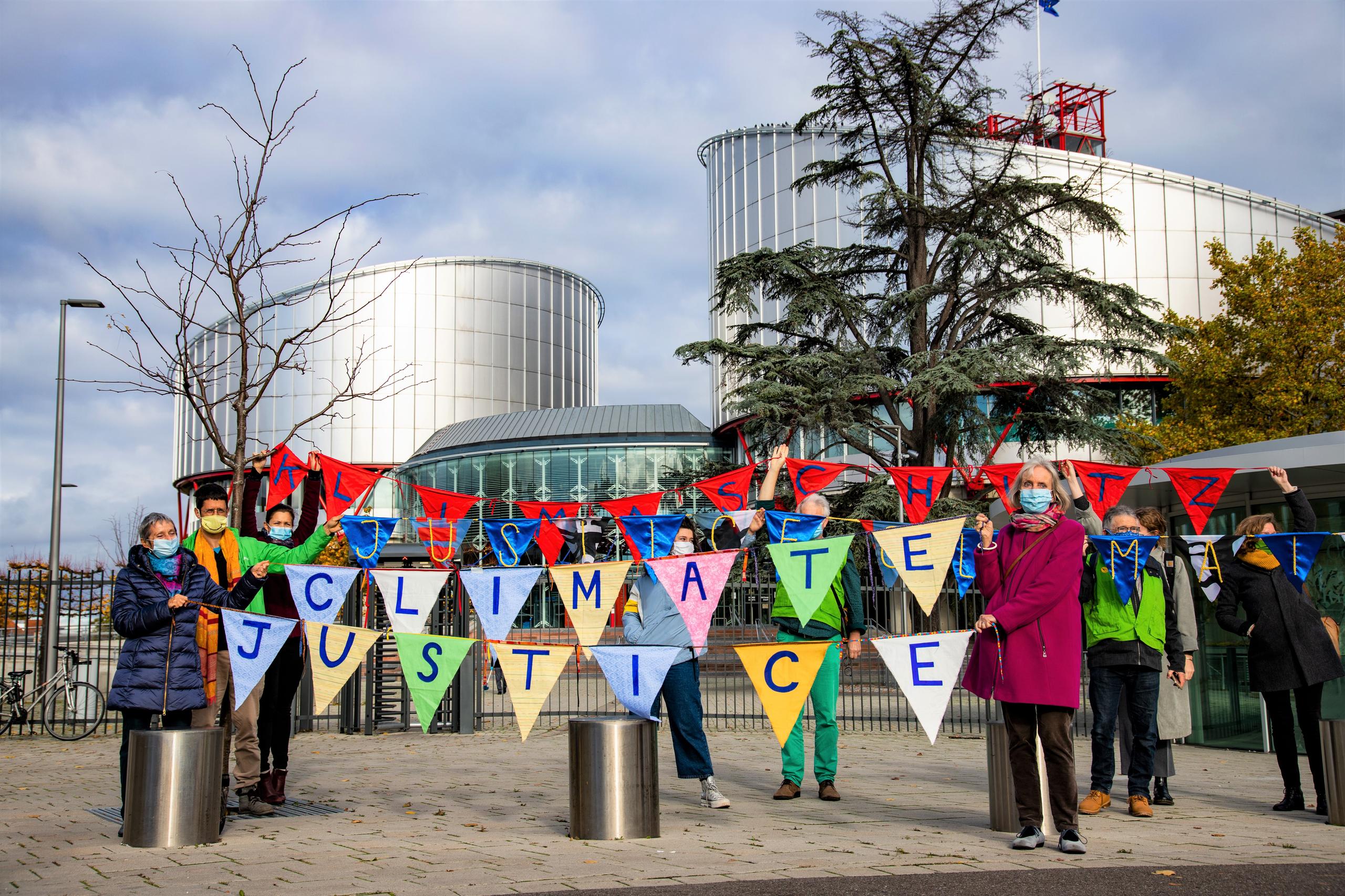
Will a group of elderly women succeed in convincing the European Court of Human Rights that Switzerland’s climate policies are harmful to their health? The lawsuit filed in Strasbourg and the UN climate change conference in Abu Dhabi are among this year’s major events.
Two weeks into January and 2023 is already on track to become one of the hottest years everExternal link, according to the UK’s national weather service. The warm weather broke records across Europe this winter, and in Switzerland many ski slopes have been deprived of snow.
But will it also be a breakthrough year in tackling the climate crisis? Below are some dates and events that could prove decisive in Switzerland and globally.
Elderly women vs Switzerland
The association KlimaSeniorinnen SchweizExternal link (Senior Women for Climate Protection Switzerland) has accused the Swiss authorities of pursuing inadequate climate policies. This, they say, infringes on the right to life and health of elderly women. This group of people is the most vulnerable to climate change and particularly heat waves, according to some studiesExternal link.
After being defeated by the Federal Court, the highest legal instance in Switzerland, in 2020, the association turned to the European Court of Human Rights (ECHR) in Strasbourg. Starting March 29, 17 judges of the ECHR’s Grand Chamber, reserved for the most serious cases, will hear the women’s case. The ruling is expected by the end of the year.
“We’ve been working on it for six years and now we expect to win,” Norma Bargetzi-Horisberger, a member of the association committee, told SWI swissinfo.ch. “This is an important cause not only for Switzerland, but for the whole world. If we were to win, it would set a precedent with international repercussions,” she said.
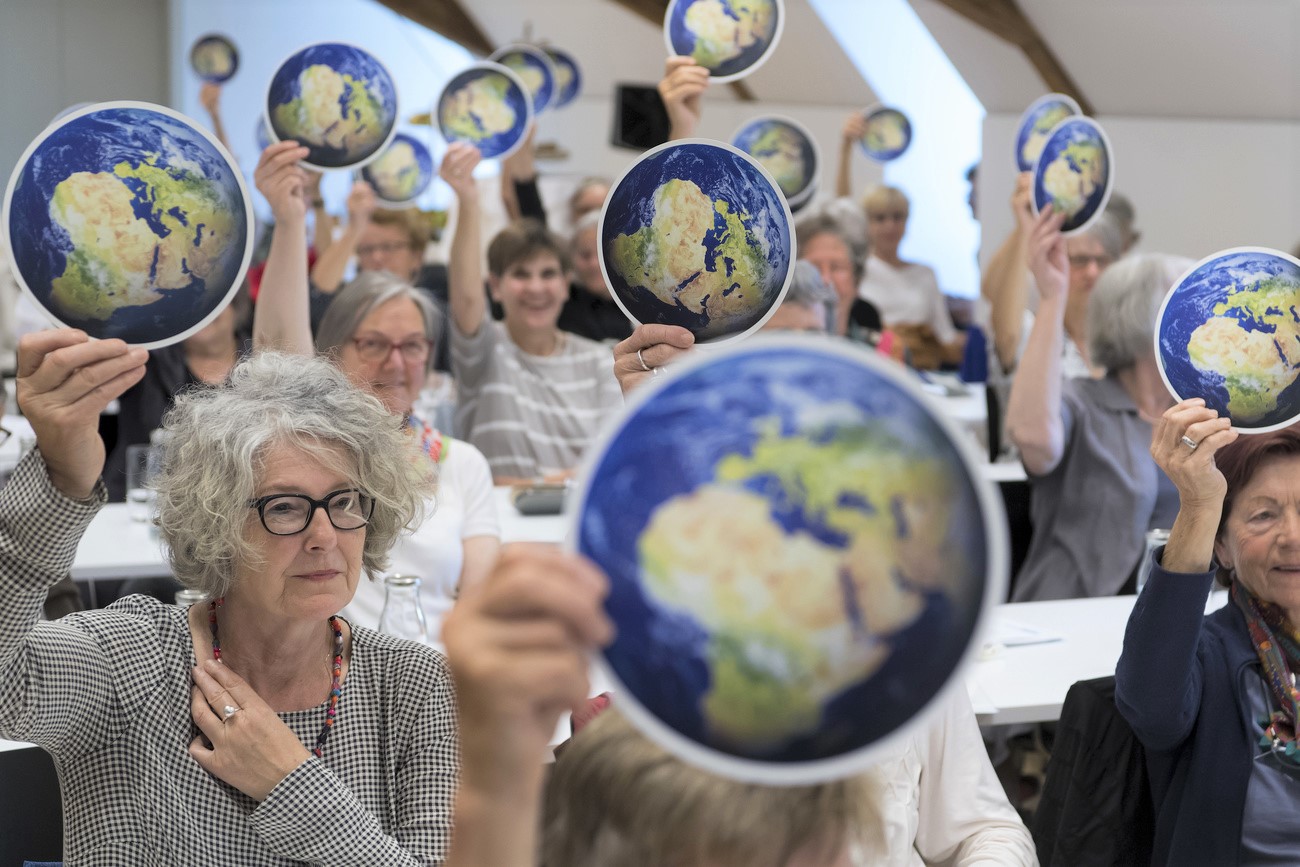
More
Is the climate crisis a threat to human rights?
A verdict in favour of the applicants would force Switzerland to set more ambitious climate goals. For example, emissions reductions by 2030 would have to be increased from 50% to 61% (compared to 1990 values). Internationally, the ECHR deliberation will have a “profound effect on courts throughout the world as their finding will inform and influence the decision made in other judicial processes,” says Kelly Matheson, a climate litigation expert at the law firm Our Children’s Trust, quoted by The GuardianExternal link.
Indonesians vs. Holcim
The Swiss association is the first to bring human rights and environmental issues to the ECHR. However, it is not the only one to go to court. Climate cases nearly doubled between 2017 and 2020, and there are now more than 2,000 climate change-focused proceedings pending in judicial institutions around the world.
These include the lawsuit filed in Switzerland against Holcim, the world’s largest cement producer. Last year four residents of Indonesia’s Pari Island sued Holcim, whose registered office is in Zug, for CO2 emitted over the years and its contribution to rising sea levels.
This is the first civil case in Switzerland against a company for its impact on the climate. The residents of Pari Island have until the end of January to present their claims to the cantonal court of Zug for the next stage of the civil case. At stake is much more than the compensation the island residents claim from Holcim (amounting to about CHF3,500 ($3,750) per person). As in the case of the elderly ladies, a favourable verdict would set a weighty precedent for similar disputes, both in Switzerland and elsewhere.
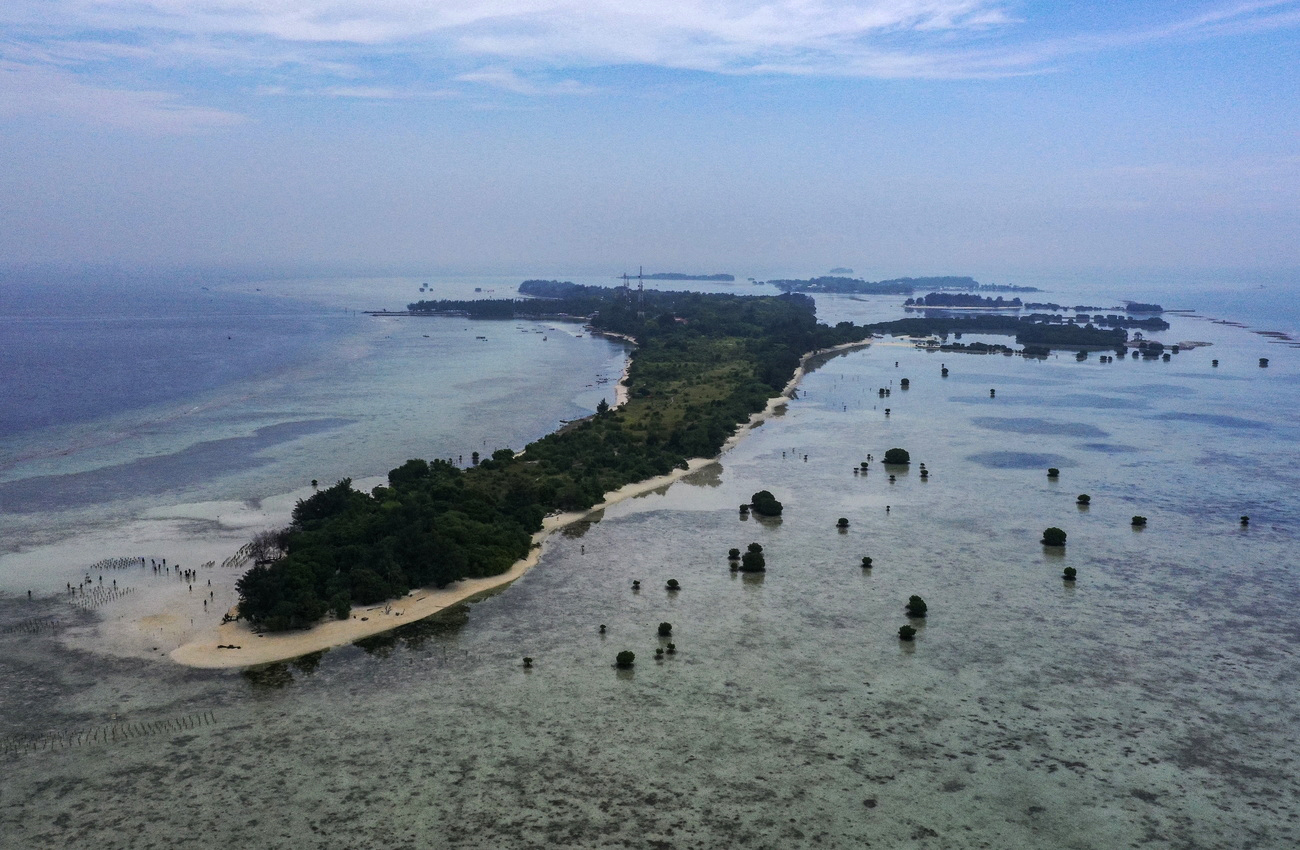
More
Climate litigation comes to Switzerland
Synthesis of climate science
Judges around the world will also be able to base their decisions on the summary of the sixth Report of the Intergovernmental Panel on Climate Change (IPCC), which will be released at the end of March.
It is an assessment of the latest scientific evidence and socioeconomic information on the climate crisis. The document is intended for policymakers and will complement the findings of the reports of the three IPCC working groups, as well as the special reports published since 2018.
Climate change conference
The next United Nations Climate Change Conference (COP28) will take place in Abu Dhabi from November 30 to December 12.
In the capital of the United Arab Emirates (UAE), state representatives and negotiators will have to define the contours of the new global fund to compensate poor countries for losses and damages suffered owing to the climate crisis, which was decided at COP27 in Sharm El-Sheikh, Egypt, in November 2022. In particular, delegates will hash out which countries will have to contribute to the fund and who will manage it. Switzerland, which would have preferred other aid mechanisms, has not yet decided whether it will contribute to the fund.
Reducing emissions from food and agricultural systems in line with the goal of limiting global warming to 1.5°C above pre-industrial levels will also be discussed for the first time at COP28. Also on the table is the proposal to phase out all fossil fuels, although it is unlikely that the expected chair of the COP28, Sultan Al-Jaber, who serves as the UAE’s minister of industry and technology and CEO of the national oil company, will support this proposal.
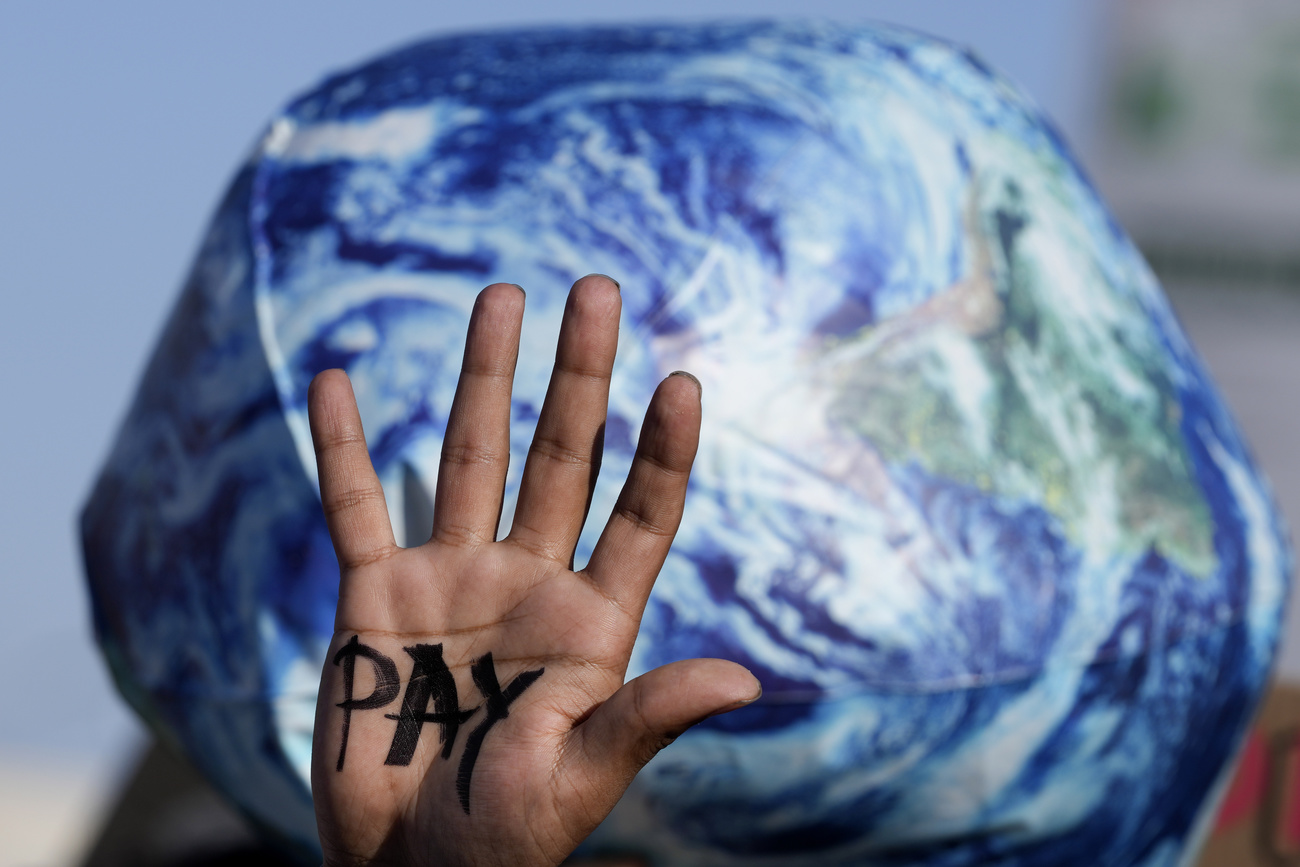
More
Switzerland denounces COP27 outcome
Glaciers at the ballot box
In Switzerland, the second phase of the pilot programme “Adaptation to Climate Change” will be completed this year, involving 50 projects aimed at reducing risks and increasing adaptive capacity. An early detection and warning system for droughts is also in the process of being set up that could help plan irrigation of agricultural crops or alternatives to navigation on the River Rhine.
But it is the counterproposal to the so-called Glacier Initiative that will draw attention to the climate crisis. The indirect counterproposal drawn up by parliament envisions achieving climate neutrality by 2050 with investments in the billions, but unlike the original popular initiative it does not include an outright ban on fossil energy carriers. The Swiss people will probably be asked to vote on this on June 18.
Edited by Sabrina Weiss/ts
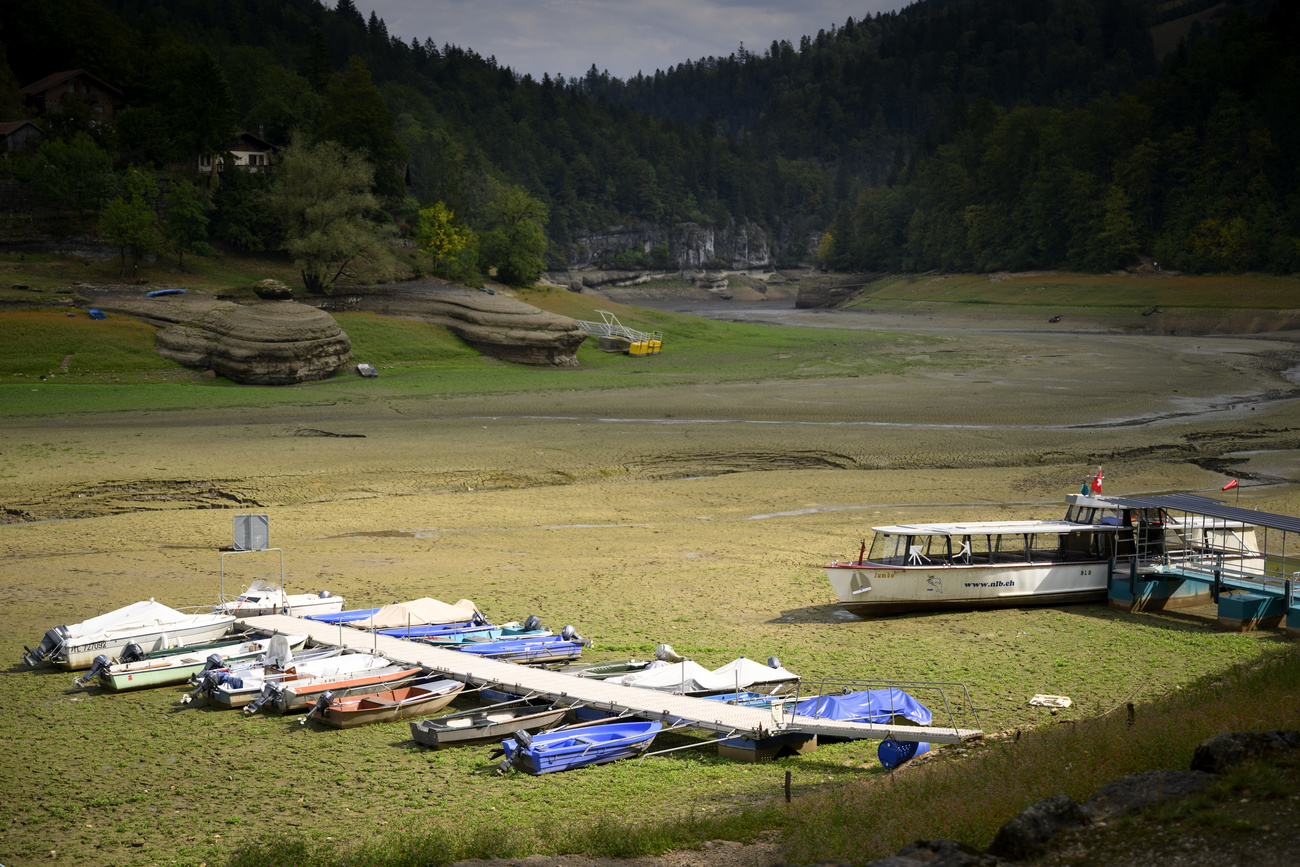
More
Switzerland plummets down international climate rating

In compliance with the JTI standards
More: SWI swissinfo.ch certified by the Journalism Trust Initiative

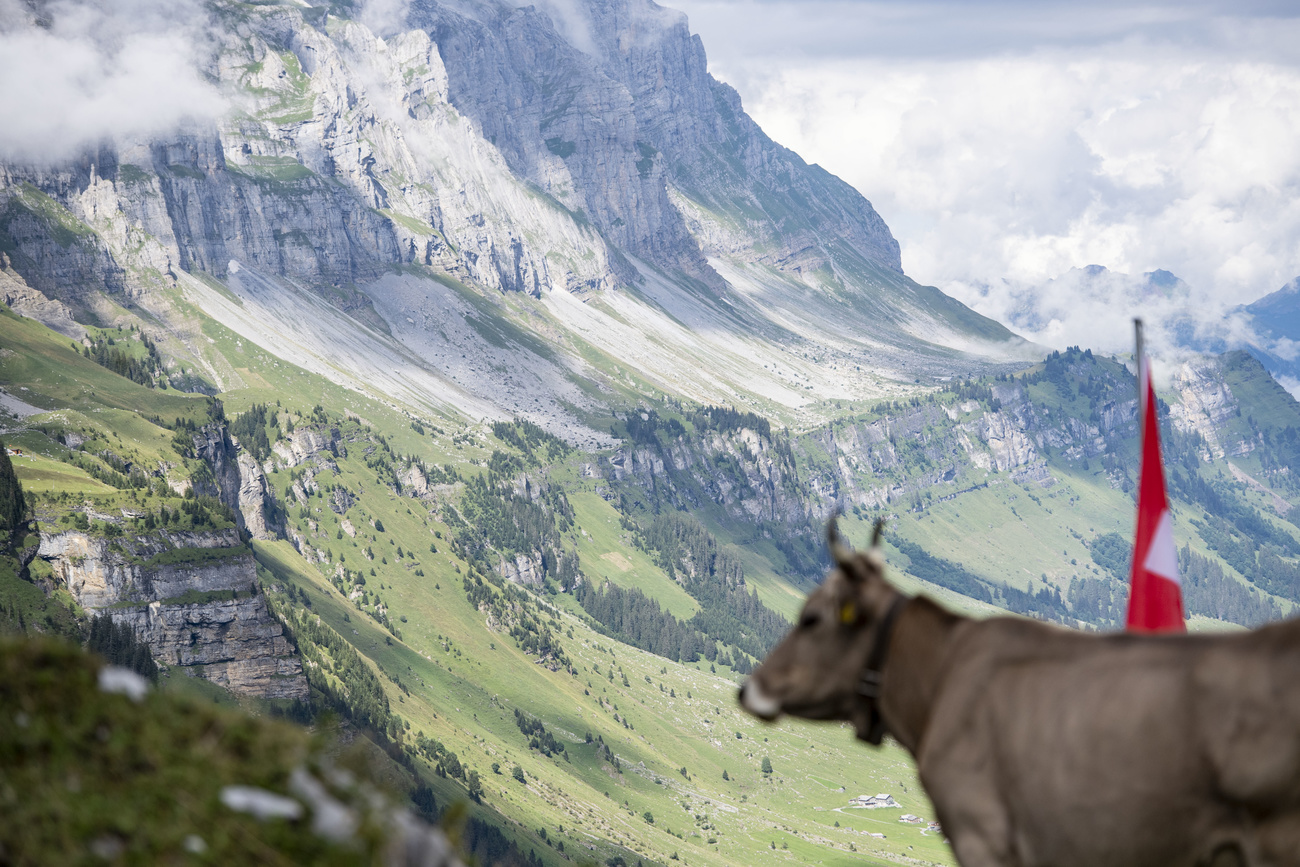
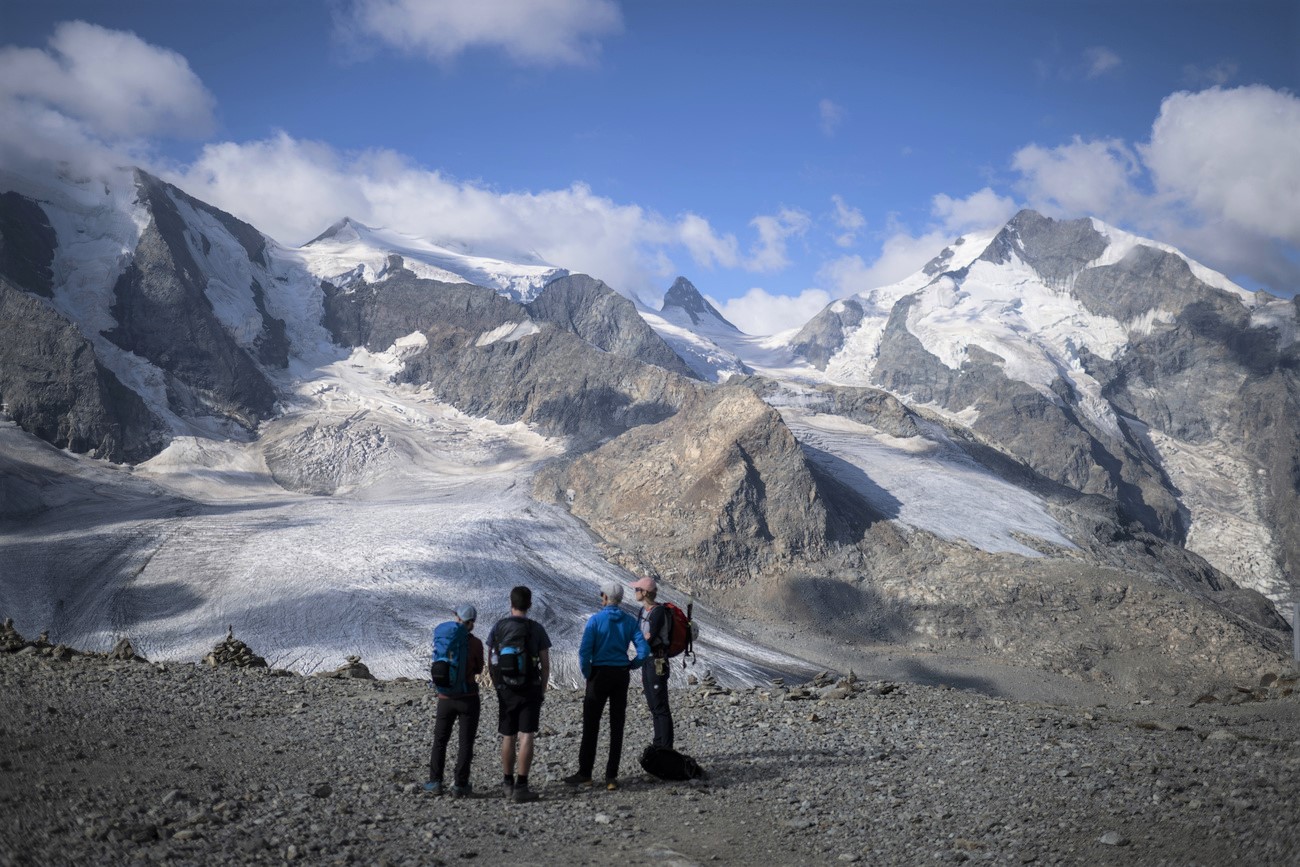

You can find an overview of ongoing debates with our journalists here. Please join us!
If you want to start a conversation about a topic raised in this article or want to report factual errors, email us at english@swissinfo.ch.